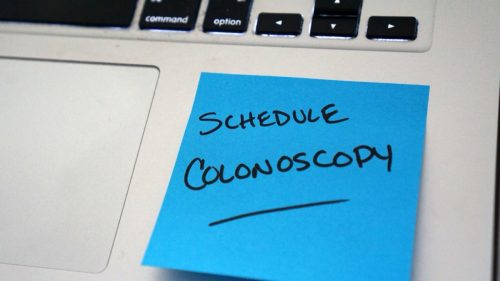5 Things Your Doctor Wishes You’d Stop Doing in Your 50s

In college, I used to get through finals week fueled by Diet Coke, Peeps, and Kamel Reds (remember those?). Back then I could get away with pulling all-nighters, eating anything I wanted, and in general, treating my body like an amusement park. Now that I’m in my late 40s, however, it’s a different story. If I miss a night of sleep, I feel it for a month—and if I go a few days without running or doing yoga—my go-to workouts—I get grouchy and my joints start to stiffen up. As I inch closer to a new decade, it seems like a good time to take stock and figure out whether I need to change my ways once again in order to feel my best.
“In your 50s, you must start disciplining your diet, exercising regularly, and finding ways to manage your stress if you want to live healthily far into your 80s,” Michael Green, MD, Chief Medical Officer at Winona, tells me. Read on to find out what, specifically, Green and other doctors told me they wish we’d all stop doing in our 50s to give us the best chance of feeling good during the second half of our lives.
READ THIS NEXT: If You’re Between 50 and 80, You Should Be Doing This Daily, Doctors Say.
1
Working too hard

“Many 50-somethings today are still working, often full-time and even overtime,” says Green. Since full retirement age in the U.S. is approximately 67, it’s unlikely that most people are going to stop working in their 50s—but cutting down on working overtime seems like a reasonable goal.
If the demands of your job have you feeling frazzled, Green offers this advice: “Remember the importance of rest, venting, support networks, and not overworking [yourself].” Things like taking a break to meditate, go for a walk, or do some breathwork can help take your stress level down a notch or two.
2
Ignoring bad habits

We all do things that we know probably aren’t the best for our health—and sometimes, at least in my case—we prefer not to think about them. But Green says we need to take our heads out of the sand, especially once we’re in our 50s. “[I] wish my patients and 50-somethings out there would take a look at their habits,” he tells Best Life.
Green suggests doing “an audit” of your habits, both healthy and not-so-healthy. “Do they feel balanced when you write them down and weigh them out? Do you have long-term risk factors you have been neglecting?” he asks. “Our 50s are a great time to get honest with ourselves about how well we care for our bodies.”
3
Self-diagnosing (and self-medicating)

With so much information readily available online, it’s tempting to take our health into our own hands. We can easily ask the internet what’s wrong with us, which supplements we should take, and which alternative therapies to try—but Kevin Huffman, DO, a board-certified bariatric physician and founder of Ambari Nutrition, says this isn’t such a great idea.
“Googling symptoms and deciding to self-medicate using supplements, restrictive diets, and detox products” is something Huffman says he wishes everyone would stop doing—but especially when you’re over 50. “Always talk to your doctor first before taking any supplement and/or when you want to try alternative medicines,” he tells Best Life. “Some of these products can make the medication you are already on less potent, increasing the severity of your existing condition(s). They could also result in toxicity or contraindications when used together with your current medicines.”
4
Not being honest with your doctor

Honesty, as they say, is the best policy—and if you do decide to try out a new supplement routine, wellness product, or alternative health therapy, Huffman urges you not to hide it from your healthcare provider. “Be upfront as early as possible so that they can determine the best course of action quickly to protect you from further harm,” he says.
What about those times when your doctor specifically tells you not to do or take something, and you do it anyway? “Don’t lie to your doctor if you went against their advice,” he cautions, reiterating that if you’re not honest with your doctor, they won’t be able to help you.
For more health news sent directly to your inbox, sign up for our daily newsletter.
5
Skipping cancer screenings

Last but certainly not least, it’s vital to keep up with the recommended cancer screenings for people in your age group, says Alexandra Albanese, MD, a family physician at Cook County Health—and she says one screening in particular is essential even before you turn 50.
“The number one thing I wish patients would stop doing in their 50s is avoiding colon cancer screenings. We are seeing colon cancer at younger and younger ages, and the new guidelines actually recommend starting at age 45, so patients in their 50s are already behind,” says Albanese. “There are several options for colon cancer screening now, including stool tests that can be easily done at home. It’s nothing to be afraid of and could save your life!”
Best Life offers the most up-to-date information from top experts, new research, and health agencies, but our content is not meant to be a substitute for professional guidance. When it comes to the medication you’re taking or any other health questions you have, always consult your healthcare provider directly.